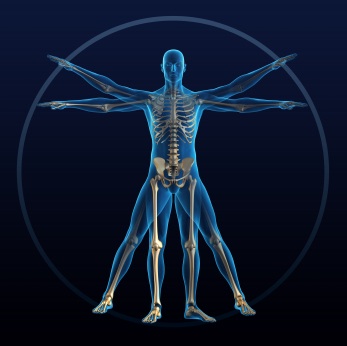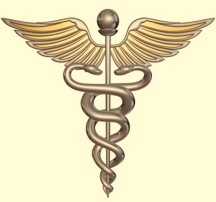A Guide for Physicians
and Other Healthcare Providers
Medical Professionalism

Medical professionalism is often ignored as a desirable quality to attain in becoming a physician these days and is probably considered less important now in the practice of medicine than it once was - not because it is not desirable, but more because of lack of emphasis on its importance. Furthermore, I think the reputation and former high regard of medical professionals has suffered a little as a result of this. Although not gone yet, at least some of the reverence and respect for physicians has certainly faded in recent years. If nothing else, I hope this site will help re-establish the following principles as a foundation upon which the medical community can gain new respect.
________________________________________________________________
________________________________________________________________
The word ‘professionalism” encompasses and, indeed, demands many qualifications of character and attitude, including all of those listed below, but entails even more than just a listing of desirable traits. It is a way of life, inseparable from the individual, acquired through education, training and experience.
Think of yourself as a patient for a moment. (Most of us become one sooner or later.) What virtues would you want your medical professional to have while he or she is taking care of you in the office or hospital?
As a medical professional, which of the following characteristics do you already have and which ones do you need to work on?

|
--Personable Approach – It amazes me that many physicians these days are all “business”. They don't even say "Hi, how are you?" but rather enter the room and say "Well, your x-rays are normal, so there's nothing wrong with you. You can go home now." I think just a brief expression of friendliness or concern about how their day is going would be very helpful in showing that you’re human and that you care about them as a person rather than as a body to be fixed, or ignored.
--Altruism – A medical professional should be concerned about his patients over and above concerns about his own well-being (up to a reasonable limit). That is why we get up in the middle of the night if we have to, why we work long hours each day, sacrificing our suppers to see one more person who needs our help or spend long hours at the end of an office day to return phone calls. These are things that we all have done, though many outside the medical profession are unaware of this. This is not to say that a health care provider should never have time off, but even then, the responsible professional will always be certain that his patients are well cared for, if not by him or her, then by an equally competent partner or covering professional.
--Compassion – Even if you are not the most compassionate person in the world, or if you have trouble expressing it, you have to give patients a sense that somehow you are concerned about their welfare. You may not be a hand-holder, but a word or two of concern about your patient’s plight, whatever that may be, will go a long way to forming a bond. It may help to imagine what it would be like to be on their side of the bedrails for a moment.
--Nonjudgmental embracement of equality– This is a tough one for many of us. If your patient is an alcoholic, drug-seeking derelict who is sick with pancreatitis, you cannot treat him with disdain and disrespect, and you cannot talk to him or to others about him in a condescending way. You may think you, a "medical professional", are a better person than he is, but you probably have no idea about the kind of life he’s had, what kind of genetics he has or the environment that he grew up in that got him into the mess he’s in now. Whenever I run into these situations, I often think of the phrase, “There, but for the grace of God, go I.”
--Responsibility – Basically this means you have to do your job. You can’t be lazy and take the day off when people are waiting for you to operate on them. More subtly, you can’t not call them back or ignore them when they ask questions. You can’t tell a patient you will be there for them and then not be there for them without a very good reason, which ideally should be explained well ahead of time.
--Trustworthiness – Your word as a medical professional must be gold. Patients will quote you to their families, their friends and their lawyers. Don’t promise what you can’t deliver. If you make a mistake in something you have said, admit it at the soonest opportunity, and apologize for the error. When telling patients bad news, be truthful but not brutal, and always be compassionate.
--Confidentiality - I think the current laws have carried this a little too far; nevertheless, if you're the patient, you don't want the world to know about your ailments - not the other doctors who aren't seeing you, not the janitor in the elevator that may be listening while your medical professional is discussing the case with a consultant, and certainly not the people in the next booth at the restaurant listening to your doctor tell his spouse what a weird patient he had to see that day.
--Appearance – Believe it or not, despite the more casual times in which we live, appearance still counts. Try going to a business job interview or to a medical school interview with flip-flops, shorts and a tee shirt. – Try explaining to someone that he or she has widespread metastatic cancer when you look like you just came in from the beach.
--Patience – Trust me. You will need this when the office patient brings in a list of diagnoses from the Internet that explain all of his symptoms, or when the demented patient asks the same question 5 times during the same visit.
--Competence – Know your stuff. This goes without saying. If you don’t know what you need to know in a certain situation, find out, or find someone who does.
--Confidence – You must have a certain amount of confidence in your ability to provide good patient care. This comes with education, training and experience, but also requires knowledge of yourself and belief in yourself as a person as well as a medical professional.
--Strive for Excellence - The professional tends to be a perfectionist, pays close attention to details, is somewhat compulsive, a little competitive, and has an unending drive to be better than what s/he already is - always wanting to learn more, always wanting to be better, both personally and professionally.
--Humility – I saved the best one and the most important one for last; because, if you don’t have this one, you may as well not have any of the others, and you probably need to look for another occupation far away from the medical profession. Confidence is one thing, but egotistical, arrogant, self-centeredness is another. The difficulty is that the ones that don't have humility either don't know they don't have it or don't think they need it; and no one can tell them they need it because they probably won't listen.
Humility is the mark of advanced education and maturity; for the more you know, the more aware you are of what you don’t know, and that should scare you a little, or at least help you realize your limitations. That keeps you from placing yourself on a pedestal that you have no business being on. It brings you down amongst common man, which is what you really are anyway. The more you realize that, the more professional you will be.
If you have all of the above characteristics, then you are an amazing miracle of nature and probably not human.
However, if you have some of these characteristics and admire these qualities in others, then you are on the right track.
These are goals to achieve or at least try to improve upon to make you a better medical professional and ultimately a better person - something to aim for. From the patient's perspective, you will have earned their respect and trust. The end result of this is that they will be more likely to comply with your treatment and have faith in your care. You have shown them that they are the focus of your concern and that you are their partner in getting them well. The healing process has already started before they have taken their first pill.

This page was last updated on October 22, 2019.
Disclaimer | Privacy Policy | Copyright | Sitemap | Contact | Comments
Disclosure: As an affiliate for SBI, Google and Amazon, this site may earn a small commission on ad links leading to qualifying purchases. These links are clearly marked as 'ads' or 'sponsored links', or with a √ checkmark.










